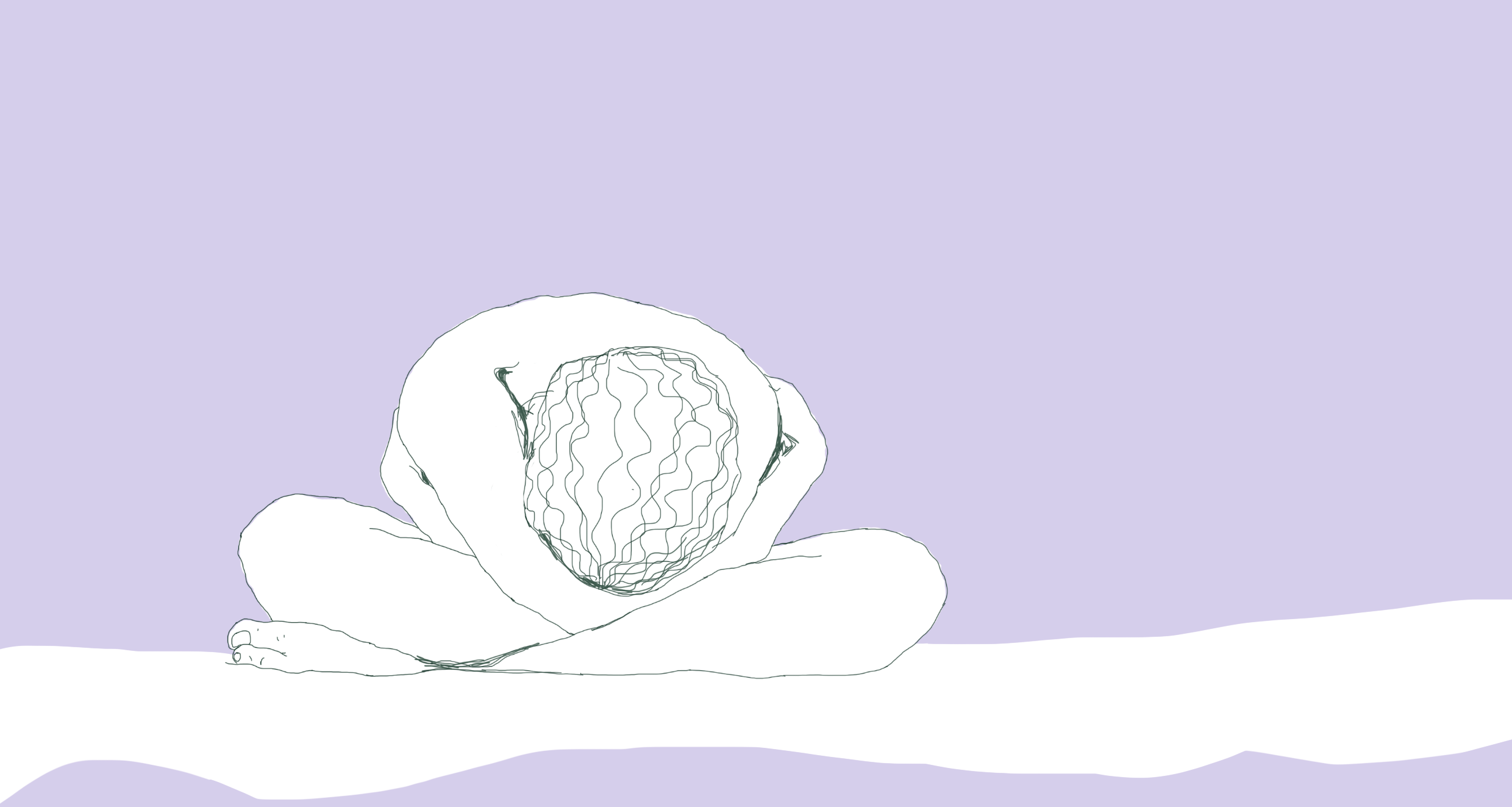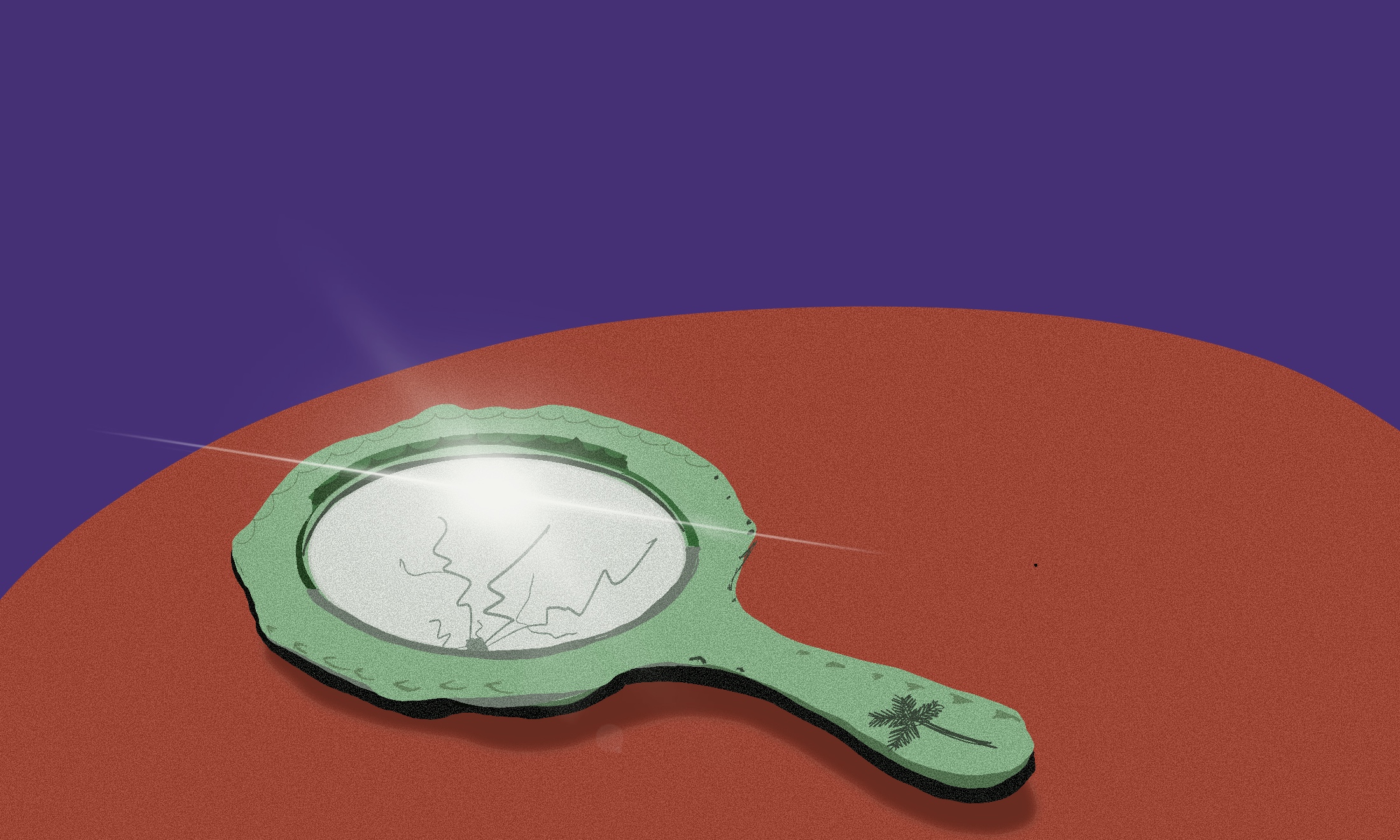
Illustration by Mariel NO
One thing I love about growing up bilingual is the way in which my view of the world is enriched by a panoply of meaning and interpretation allowing for a more nuanced way of communicating and expressing myself. I was born in Paris to Mauritian parents and was brought up in London from the age of five so my natural dialect is a melange of all three languages. There are Creole words that find their way into my English sentences because those are the words that best suits my meaning.
For example, in Creole, we say les tombe for “let it go”. It literally translates to “let it fall”. The verb “fall” suggests the figurative item in question holds weight and wants to fall, that the momentum comes from the thing that needs to be relinquished and allowed to drop, while “let it go” ascribes this figurative tension to the person; they are holding on to something tightly, resisting. It is a subtle difference but speaks volumes. In this instance, for me, only Creole will do. But there are instances where my mother tongue falls short, particularly when it comes to talking about mental health.
As an adult, I have struggled on and off with anxiety and like many mental health conditions, I experienced physical symptoms that accompanied my anxiety – such as panic attacks, loss of appetite and insomnia. I began to restrict my diet and lost a lot of weight. My parents noticed my physical decline and when it came to talking about the “why” – ”why do you want to lose weight? You are already so thin?” the explanation wasn’t so easy.
Whenever I want to explain something complex to my parents, I tend to do so in Creole so that my meaning isn’t lost in translation. But how do I begin to communicate mental health issues with my parents when topics like that are not only not discussed, but where there is no vocabulary with which to discuss them?
“How do I begin to communicate mental health issues with my parents when there is no vocabulary with which to discuss them?”
You can say je suis anxieux which means “I feel anxious”, however, ”anxious” is not the same as “anxiety”. In Creole, there is no way to express the condition of anxiety.
As my dad says, “anxiety is an English word”.
Growing up in the 90s you didn’t hear many people talk about depression, less so in my family. If it was mentioned there was always a stigma attached to it, and an associated sense of shame, as though the person with depression was weak or had failed. Some of this thinking has perpetuated into contemporary society. Whilst it is a huge positive that more discourse exists surrounding mental health topics, in some families like my own, the dialogue can at times be stilted because of the gaps in language and cultural context. I believe that in order to have a dialogue, language is key.
I can’t remember my family ever referring to someone we knew as having a mental health problem. This wasn’t something they spoke of when recounting tales from their childhood or of their families and friends in Mauritius but when I think about it, there were times when my parents spoke in Creole to one another while I played nearby and would hear my Dad use the term deranger as he tapped the side of his head with his index finger.
Disturbed.
No further explanation. This person was en fou. Mad. The term madness not only holds pejorative connotations but is also reductive. How often do we use terms such as “mental”, “crazy” and “mad” in hyperbolic fashion to describe things that are busy, unusual or out of the ordinary? Language is so loaded, as much in its absence of it as in its presence.
In Creole, as with French, one word may have a different meaning depending on the context in which it is used. Fou has meanings ranging from crazy and demented to daft, but it is also used as an expression of annoyance. At times like this, vocabulary can be limiting.
“When I sat and explained that I didn’t want to eat, how my anxiety made me feel, I did so knowing this was a whole new language”
Depression in Creole is malade depression. Likewise, in French, the noun malade meaning “illness” or “sickness” tends precedes most physical ailments such as headaches and stomach aches. The benefit of this shared noun means that mental health conditions sit figuratively side by side physical disorders – encouraging an equal reverence. But in French-based Creole there is no word for anxiety. No word for panic attack or eating disorder. It is difficult enough that mental health conditions can feel invisible to those who do not suffer from them and this lack of vocabulary in families such as mine mean that not only are the conditions not seen, they are not heard either.
When I sat and explained that I didn’t want to eat, how my anxiety made me feel, I did so knowing this was a whole new language for all of us. For me, because I was articulating something that I had up until then kept hidden. Whilst it was challenging putting my meaning across and it felt like every sentence was met with questions, my parents listened. They asked their questions and they heard my responses.
Anxiety is not a Creole word, but there are plenty of English words that were not English until they were adopted into the language: husband is a Viking word; depot and chic are French and loot comes from Hindi, so why can’t “anxiety” be adopted into Creole? Having a language with which to have these discussions is significant because, as the conversation around mental health awareness expands, so to must the language we have at our disposal. And when those who are brave enough are able to speak, people, like my parents, must listen.
If you or a loved one are suffering from anxiety, eating disorders, depression or any other mental health conditions please seek professional help as soon as possible. More information and online help centres can be found here.









